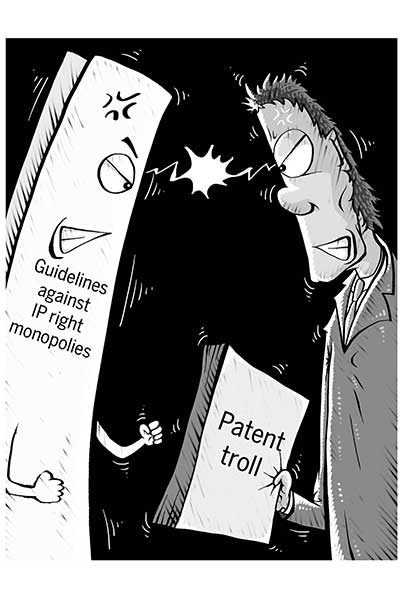
[Photo provided to China Daily]
After four months’ effort, the National Development and Reform Commission recently finished a draft version of guidelines against monopolies that result from the misuse of intellectual property rights.
The drafting team consisted of more than 30 members, who conducted surveys of 350 companies, 45 law firms, 12 universities, five research institutes and several industry organizations.
The draft consists of five parts, trying to solve issues including IP protocols that could eliminate market competition and the misuse of market dominance involving IP rights.
According to the guidelines, law enforcement agencies should not presume that a company has dominance in a market only because it owns IP rights. Instead, they should consider how the company uses its rights, and how that then impacts on competition and innovation.
The draft will be reviewed by experts and related associations to suggest improvements. The final version is expected to be released in June.
Industry insiders said the guidelines will serve as a check and balance force against “patent trolls”, a term that refers to individuals or companies that do not manufacture products but acquire patents and sue alleged infringers in a manner considered unduly aggressive or opportunistic.
Technology-intensive industries, including IT, telecommunications, medical equipment and automobiles, are areas that are particularly susceptible to bad-faith use of IP rights, which leads to monopolies.
“The world’s smart manufacturing industry is struggling to cope with over-excessive lawsuits by patent trolls,” said Xu Xinyu, an official at the commission. “The innovation encouragement mechanism is being misused.”
Zhang Handong, head of the price-supervision and anti-monopoly bureau of the commission, said every right has the possibility to be misused, and IP rights are no exception.
“An IP rights owner could use the right to acquire and maintain a dominant position in the market, which constitutes a monopoly,” he said at the fourth China Competition Policy Forum held on Oct 22 in Beijing.
“If a rights owner expands the scope of the right, or uses the right in an improper way, he or she will become a barrier to technical innovation, which is the opposite of the intentions of the IP protection system and against the fair play principle of the market.”
He said the recognition of “misuse” is complicated, and can differ among countries and even in different periods in the same country. As a result, the common practice is that the misuse of IP rights is often defined in guidelines rather than laws.
Shi Jianzhong, deputy president of the China University of Political Sciences and Laws and a member of the drafting team, told Economic Information Daily that the guidelines aim to provide a reference and improve the transparency of anti-monopoly enforcement, and help market entities use IP right properly.
The State Council’s anti-monopoly committee has authorized the NDRC to draft six books of guidelines to echo its latest policy issued on Oct 12 that called for strengthened law enforcement against monopolies.
The other five books cover anti-monopoly systems in the auto industry, leniency policies, remission procedures, suspension of investigations and the calculation of fines.
